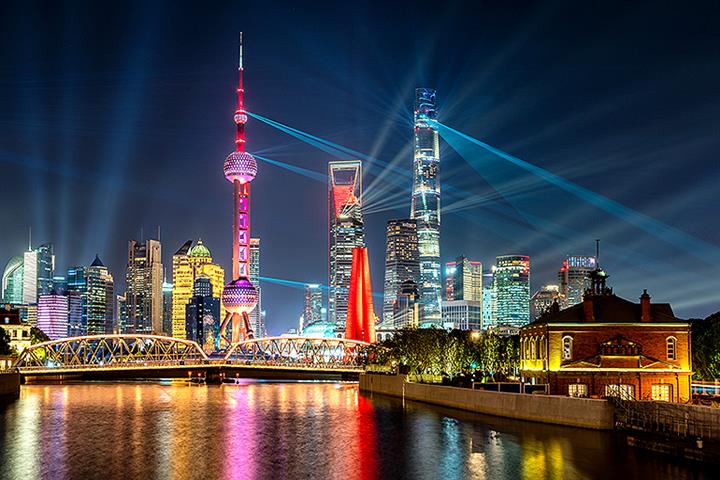 World to Access, Share China's Huge Market as Country Opens Further
World to Access, Share China's Huge Market as Country Opens Further(Yicai Global) Nov. 6 -- China will continue to open up in an all-round way to turn its vast market into a market for the whole world, a market shared by all and a market accessible by all, the Chinese president said at the opening ceremony of the third China International Import Expo.
China’s huge market is the most promising in the world, Xi Jinping said in his keynote speech delivered via video link on Nov. 4. The opening up of its market to the world will bring much positive energy to the global community, he added.
“In the past, we were relatively passive about opening up and more concerned with adapting to the rules of the world,” Tu Xinquan, dean of the China Institute for World Trade Organization Studies at the University of International Business and Economics in Beijing, told Yicai Global.
But as our economic strength develops and systems become more advanced, we are now taking the initiative to open up on our own, because we think opening up meets our own needs and is line with the current level of economic development, he added. As a result, the current construction of free trade zones and free trade ports, as well as the negotiation and signing of free trade agreements, are very different from the past.
Good Progress
Despite the Covid-19 pandemic, the pace of opening up in China has continued to quicken this year, Xi said in his address. The opening-up measures announced by Xi at last year's CIIE have been implemented in full, including the release and putting into play of the master plans for the development of the Hainan Free Trade Port and for the further reform and opening-up of the economic powerhouse of Shenzhen.
China has taken steady steps to expand imports, with imports of goods and services outpacing the global average over the past year, he said.
Good progress has been made in protecting intellectual property rights and advancing cooperation between the countries along the Belt and Road Initiative, Xi said.
Chinese manufacturing is an important and positive part of the global industrial and supply chains. The massive domestic market demand in China will continue to unleash endless potential for innovation, he added.
FDI Inflows
Foreign direct investment in actual use in China came to CNY718.81 billion (USD108 billion) in the first nine months, a year-on-year increase of 5.2 percent, bucking the global downward trend. Both FDI indicators, calculated in the US dollar and the Chinese yuan, turned positive this year, the first time that this has happened.
The attractiveness of China’s vastly huge market to foreign capital has not changed despite the pandemic, Zong Changqing, director of the foreign investment department at the Ministry of Commerce, told Yicai Global previously.
The country’s competitive advantages in industrial facilities, human resources and infrastructure remain the same, and the expectations and confidence of foreign investors in China have not changed, he added.
Many global companies regard China as a ‘safe haven’ for cross-border investment and have changed their attitude from waiting and watching at the beginning of the pandemic to active capital increase.
German carmakers BMW and Daimler, South Korean electronics firm LG, US oil major Exxon Mobil and German chemical producer BASF are among those that have expanded their investment and production in China.
In the first three quarters, the reinvestment of US dollar-denominated profits by foreign-backed enterprises increased by 25.5 percent year on year, Zong added.
Here to Stay
Over 70 percent of US companies that own or outsource manufacturing operations in China do not intend to shift production out of the country, according to a report by the American Chamber of Commerce in Shanghai released in September. Some 32.5 percent of the more than 200 firms that took part in the survey projected their 2020 revenues will be greater than last year.
A similar study by the European Union Chamber of Commerce in China showed that only 11 percent of EU firms in the country are considering relocation or changing their investment plans, the lowest level in 10 years.
Editor: Kim Taylor